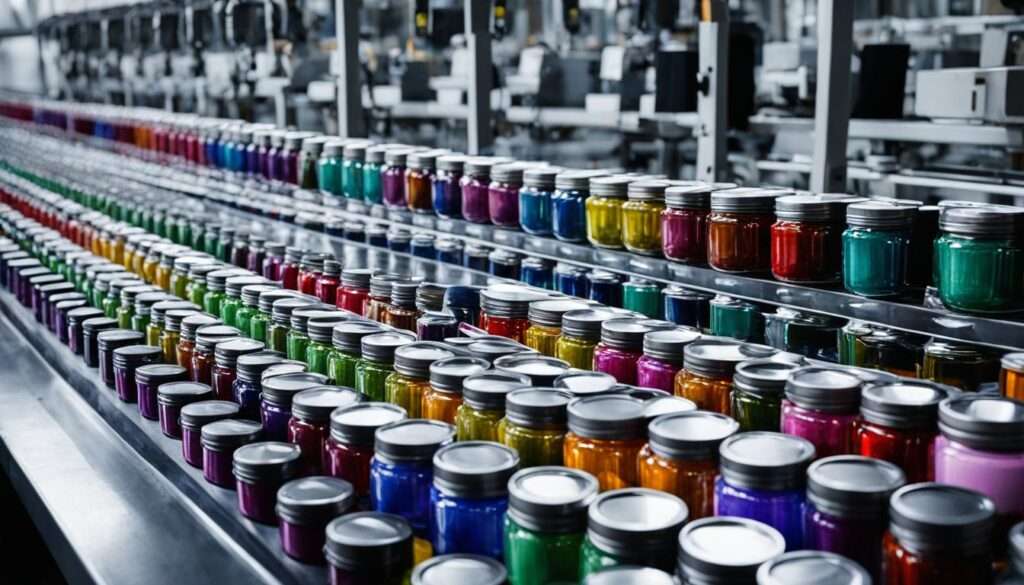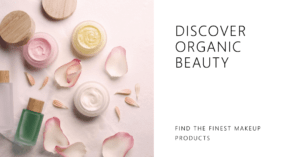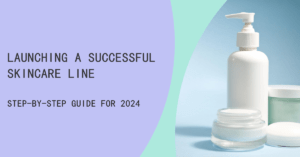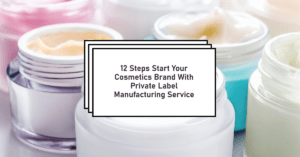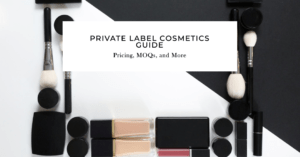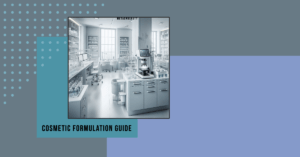Welcome to the world of private label cosmetics! Have you ever wondered how those beautifully packaged makeup and skincare products make their way onto store shelves? It’s quite a journey, filled with creativity, expertise, and a commitment to quality. In this article, we’ll take you behind the scenes and explore the fascinating process of bringing a private label cosmetics product from concept to shelf.
Private label cosmetics have gained immense popularity in recent years, offering brands the opportunity to create their own custom makeup and skincare products. From cosmetics retailers to beauty influencers, private label products have become a go-to choice for those looking to offer unique beauty solutions to their customers.
So, how does it all work? Let’s unravel the steps involved in crafting a successful private label cosmetics product. From the initial spark of an idea to meticulous formulation, from selecting a reputable manufacturer to creating eye-catching packaging, and finally, marketing and distributing the finished product – we’ll cover it all.
Get ready to dive into the world of private label cosmetics, where innovation meets beauty. Join us on this exciting journey as we uncover the secrets behind the creation of private label makeup and skincare products.
Table of Contents
Key Takeaways:
- Private label cosmetics allow brands to create custom makeup and skincare products.
- The journey of a private label cosmetics product involves various stages, including conceptualization, formulation, manufacturing, packaging, and marketing.
- Choosing a reputable manufacturer, using high-quality ingredients, and creating impactful packaging are crucial for the success of a private label product.
- Marketing and distribution strategies play a vital role in introducing private label cosmetics to the market and connecting with the target audience.
- The private label cosmetics industry offers entrepreneurs a unique opportunity to innovate and disrupt traditional branding models.
Understanding the Private Label Cosmetics Landscape
In today’s cosmetics industry, private label cosmetics have gained significant prominence. Private label cosmetics refer to products that are manufactured by one company but are sold under another company’s brand name. This section provides an overview of the private label cosmetics landscape, delving into the rise of white label cosmetics, the advantages of private label beauty products, and the impact of private label on the cosmetics industry.
The Rise of White Label Cosmetics
White label cosmetics have experienced a remarkable surge in popularity in recent years. These products are typically produced by specialized manufacturers and are then sold to various brands who rebrand them as their own. This allows brands to offer a wide range of high-quality cosmetics without the need for extensive product development and manufacturing processes.
Image:
Advantages of Private Label Beauty Products
Private label beauty products offer numerous advantages to brands. Firstly, they allow for greater flexibility and customization, enabling brands to tailor products to their specific target audience and differentiate themselves in a crowded market. Additionally, private label cosmetics provide brands with the opportunity to establish a unique brand identity and build customer loyalty.
Moreover, private label beauty products often offer higher profit margins for brands as they bypass the costs associated with product development and research. This allows brands to invest in other areas, such as marketing and brand promotion, further enhancing their competitive edge in the cosmetics industry.
Impact of Private Label on the Cosmetics Industry
The rise of private label cosmetics has had a significant impact on the cosmetics industry. It has disrupted traditional branding models, challenging established brands, and opening doors for new entrepreneurs to enter the market. Private label cosmetics provide an avenue for smaller brands and startups to compete with larger, established brands, fostering innovation and diversity within the industry.
Furthermore, private label cosmetics have encouraged greater transparency and consumer education. As brands strive to differentiate themselves, they often emphasize the quality and ingredients of their products. This has led to increased consumer awareness and demand for high-quality cosmetics across the board, raising the industry’s overall standards.
| Advantages of Private Label Beauty Products | Impact of Private Label on the Cosmetics Industry |
|---|---|
| Flexibility and customization | Disruption of traditional branding models |
| Opportunity to establish a unique brand identity | Entry point for new entrepreneurs |
| Higher profit margins | Encouragement of transparency and consumer education |
The Initial Spark: Conceptualizing Your Private Label Cosmetics Product
In the world of private label cosmetics, the journey from concept to shelf begins with a single spark of inspiration. This section explores the crucial stage of conceptualization, where entrepreneurs lay the foundation for their private label cosmetics product.
Conceptualizing a successful private label product involves careful market research and a deep understanding of consumer needs. Entrepreneurs must identify gaps in the market and pinpoint opportunities for innovation. By staying attuned to industry trends and consumer preferences, they can create products that meet the demands of their target audience.
Defining a strong brand identity is also essential during the conceptualization phase. Entrepreneurs must craft a brand story that resonates with their target market, creating a unique selling proposition that sets their private label cosmetics product apart from the competition. This includes developing a compelling brand name, logo, and packaging design that visually communicates the brand’s values and aesthetic.
Throughout the conceptualization process, entrepreneurs must constantly fine-tune their ideas, seeking feedback from industry experts, focus groups, and potential customers. By iterating and refining their concepts, they can ensure that their private label cosmetics product aligns with consumer preferences and market demands.
| Key Steps in Conceptualizing Your Private Label Cosmetics Product |
|---|
| 1. Conduct thorough market research to identify consumer needs and market gaps. |
| 2. Develop a strong brand identity that resonates with your target market. |
| 3. Seek feedback from industry experts and potential customers to refine your concepts. |
| 4. Iterate and fine-tune your ideas to create a unique and compelling private label cosmetics product. |
Meticulous Formulation: From Idea to Viable Product
In this section, we will explore the intricate process of formulating a private label cosmetics product. The formulation stage is a crucial step that requires meticulous attention to detail and collaboration with experts in the field. By tailoring formulations to meet specific needs and following rigorous testing protocols, you can create a viable and effective private label product that stands out in the market.
Collaborating with experts in private label cosmetics formulation is essential to ensure the quality and efficacy of your product. These experts possess a deep understanding of the latest trends, ingredient compatibility, and formulation techniques. By tapping into their knowledge and experience, you can develop a formulation that aligns with your brand vision and offers unique benefits to your customers.
During the formulation process, various factors come into play, including the desired product properties, target audience, and market trends. By considering these elements, you can create a formulation that caters to specific skincare concerns, such as anti-aging, hydration, or acne control. It is crucial to assess the compatibility of ingredients and their concentrations to achieve the desired results without compromising product safety or stability.
Rigorous testing and analysis are integral to the formulation process. This includes conducting stability tests to ensure that the product maintains its quality and efficacy over time. Microbial challenge tests, patch tests, and compatibility tests are also performed to assess the safety and effectiveness of the formulation. These tests help identify any potential issues and allow for necessary adjustments to optimize the product’s performance.
By carefully formulating your private label cosmetics product, you can create a unique offering that meets the needs of your target audience. The right formulation will not only deliver the desired results but also reflect the values and identity of your brand. With expert guidance and an emphasis on quality, your private label product can stand out in an increasingly competitive market.
Selecting a Reputable Private Label Cosmetics Manufacturer
When it comes to private label cosmetics, selecting the right manufacturer is a crucial decision that can greatly impact the success of your brand. A reputable private label cosmetics manufacturer serves as your trusted partner, ensuring that your products meet high-quality standards and are delivered on time. Let’s explore the criteria for choosing the right manufacturer, the role of manufacturer experience and expertise, and the value of manufacturer certifications.
Criteria for Choosing the Right Partner
- Quality: Look for a manufacturer that has a proven track record in producing premium private label cosmetics. Quality is essential to establish your brand’s reputation and gain the trust of your customers.
- Reliability: Select a manufacturer known for their reliability in terms of meeting deadlines, maintaining consistent production standards, and delivering exceptional customer service.
- Responsiveness: A manufacturer who prioritizes open communication and collaboration is key. You want a partner who listens to your needs, provides expert guidance, and adapts to changes or requests.
The Role of Manufacturer Experience and Expertise
Manufacturer experience and expertise are invaluable assets when choosing a private label cosmetics manufacturer. A manufacturer with extensive industry experience understands the nuances of product formulation, packaging, and compliance. Their expertise allows them to offer valuable insights and guidance throughout the manufacturing process, resulting in the creation of high-quality, market-ready products.
Understanding the Value of Manufacturer Certifications
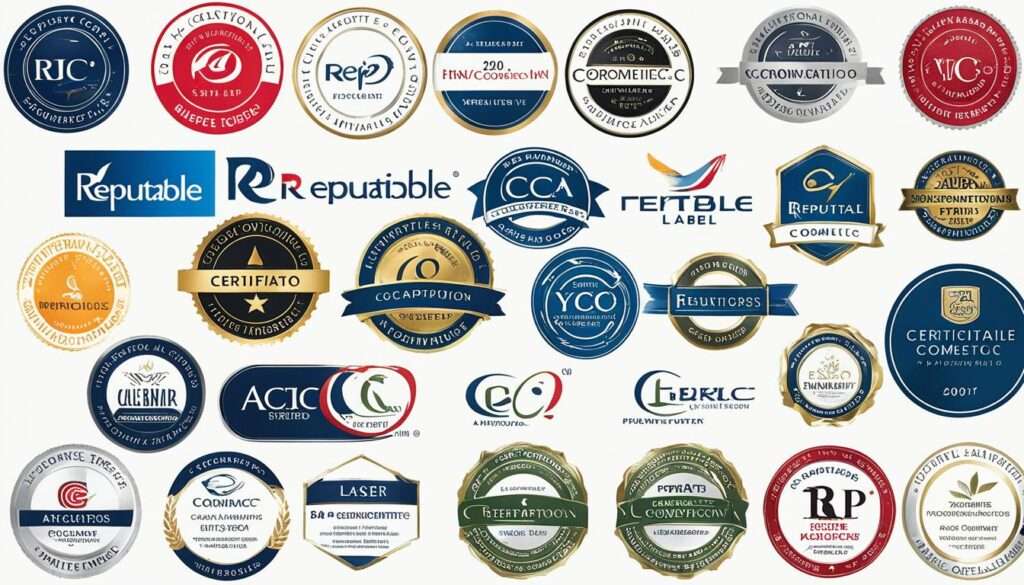
Manufacturer certifications play a vital role in ensuring the quality, safety, and compliance of your private label cosmetics products. Look for certifications such as Good Manufacturing Practices (GMP), ISO 22716, and FDA registration. These certifications demonstrate that the manufacturer adheres to strict quality control measures, follows standardized processes, and complies with regulatory requirements.
| Certification | Description |
|---|---|
| Good Manufacturing Practices (GMP) | Ensures that the manufacturer follows strict quality control standards, proper sanitation, and production protocols. |
| ISO 22716 | Specifies the requirements for a manufacturer’s cosmetic Good Manufacturing Practices (GMP) system, ensuring consistency and compliance. |
| FDA Registration | Indicates that the manufacturer is registered with the U.S. Food and Drug Administration, demonstrating compliance with relevant regulations. |
By partnering with a manufacturer who holds these certifications, you can have confidence in the quality, safety, and legality of your private label cosmetics products.
The Importance of High-Quality Ingredients in Private Label Skincare
Organic and Natural: Trending Skincare Ingredients
In today’s beauty industry, there is a growing demand for private label skincare products that incorporate high-quality ingredients. One of the emerging trends in skincare is the use of organic and natural ingredients. Consumers are increasingly seeking products that are free from harsh chemicals and synthetic additives, opting for formulations that harness the power of nature.
Organic skincare ingredients have gained popularity due to their numerous benefits. They are sourced from plants grown without the use of pesticides or genetically modified organisms (GMOs), ensuring that these products are kind to the environment. Additionally, organic ingredients are rich in antioxidants, vitamins, and minerals, which can help nourish and revitalize the skin.
Natural skincare ingredients are another sought-after category in private label skincare. These ingredients are derived from natural sources like fruits, botanicals, and herbal extracts. They offer gentle yet effective skincare solutions, helping to soothe sensitive skin and promote a healthy complexion. Natural ingredients often have unique properties that address specific skincare concerns, such as reducing inflammation, brightening the skin, or boosting collagen production.
By incorporating organic and natural skincare ingredients in private label products, brands can cater to the growing demand for clean, green beauty options. Not only do these ingredients provide tangible benefits for the skin, but they also align with the values of environmentally conscious consumers.
Ensuring Ingredient Safety and Efficacy
While the use of high-quality ingredients is essential, it is equally important to ensure their safety and efficacy in private label skincare products. Brands must prioritize rigorous testing and quality control measures to guarantee that the ingredients used meet strict standards and deliver the desired results.
Ingredients should undergo comprehensive testing for potential allergens, irritants, and other harmful substances to ensure that they are safe and suitable for all skin types. This helps to mitigate the risk of adverse reactions and build trust with consumers.
Furthermore, efficacy testing is crucial to validate the claims made about the skincare products. Brands should conduct research and clinical trials to demonstrate the effectiveness of their formulations. This scientific validation provides credibility and reassurance to consumers, increasing their confidence in the product’s ability to deliver the promised benefits.
Sourcing Ingredients Responsibly
In the quest for high-quality ingredients, it is essential for private label skincare brands to prioritize responsible sourcing practices. This involves partnering with suppliers who prioritize sustainability, ethical production, and transparent supply chains.
Responsible sourcing encompasses various aspects, such as ensuring fair trade practices, supporting local communities, and minimizing environmental impact. By selecting suppliers who adhere to these principles, brands can contribute to a more sustainable and socially responsible beauty industry.
Brands should also consider the origin of their ingredients, opting for suppliers who prioritize organic farming methods, ethical wild harvesting, or sustainable extraction techniques. This not only ensures the quality of the ingredients but also supports environmentally friendly practices.
By incorporating high-quality, responsibly sourced ingredients in private label skincare products, brands can deliver products that not only nourish the skin but also align with the values of conscious consumers. This focus on ingredient quality and responsible sourcing sets private label skincare brands apart, creating a meaningful connection with their target audience and driving long-term success.
Innovative Design and Impactful Private Label Cosmetics Packaging
When it comes to private label cosmetics, packaging plays a crucial role in capturing the attention of consumers and conveying the brand’s identity. Innovative design and impactful packaging can create a lasting impression and set a product apart from competitors. In this section, we will explore the key aspects of private label cosmetics packaging that contribute to its effectiveness and appeal.
Aligning Packaging with Brand Identity
Private label cosmetics packaging should reflect and reinforce the brand’s identity, values, and overall aesthetic. Whether it’s a sleek and minimalist design for a high-end skincare line or a vibrant and playful packaging for a makeup collection, consistency in design is essential for building brand recognition and establishing a connection with consumers. The packaging should visually communicate the brand’s message and create a sense of authenticity and trust.
Creating Consumer-Attractive Visuals
Consumer attraction is a primary goal when it comes to private label cosmetics packaging. Eye-catching visuals, such as captivating color combinations, unique patterns, or intricate artwork, can grab attention and pique curiosity. By incorporating visually appealing elements, brands can create a strong first impression that encourages consumers to pick up the product and explore further. Furthermore, incorporating relevant imagery that showcases the product’s intended use or benefits can effectively communicate its value to potential customers.
Ensuring Packaging Functionality and Sustainability
While aesthetics are important, practicality and sustainability are also key considerations in private label cosmetics packaging. Brands should prioritize packaging that is convenient for consumers to use and that protects the product effectively. Additionally, eco-friendly packaging options, such as recyclable or biodegradable materials, help align with consumer preferences for sustainable and responsible choices. By incorporating functionality and sustainability into packaging design, brands can enhance the overall consumer experience and demonstrate their commitment to both customer satisfaction and environmental responsibility.
Quality Assurance: Testing and Compliance in Private Label Makeup
In the world of private label makeup, quality assurance plays a crucial role in ensuring customer satisfaction and brand reputation. Adhering to FDA regulations and standards is of utmost importance to guarantee the safety and legality of private label cosmetics products.
Adhering to FDA Regulations and Standards
Private label makeup brands must comply with the regulations and standards set by the Food and Drug Administration (FDA). The FDA establishes guidelines and requirements for labeling, ingredient safety, manufacturing practices, and product testing. Compliance with these regulations is essential to protect consumers and ensure the integrity of the cosmetics industry.
In addition to FDA regulations, specific standards and guidelines may apply to certain product categories, such as skincare, lip products, or eye cosmetics. Private label makeup brands must stay updated with these regulations and ensure that their products meet all necessary requirements.
Implementing Rigorous Quality Control Processes
To maintain the highest standards of quality, private label makeup brands must implement rigorous quality control processes. This involves conducting thorough testing throughout the manufacturing and production stages. Quality control checks should encompass various aspects, including ingredient verification, product stability, microbial testing, and sensory evaluations.
Implementing comprehensive quality control procedures ensures that private label makeup products meet the desired specifications, perform as intended, and are free from contamination or defects. By conducting regular audits and quality checks, brands can identify and address any issues promptly, minimizing the risk of compromised products reaching the market.
Product Consistency and Customer Safety
Consistency is key when it comes to private label makeup. Brands must prioritize maintaining product consistency across different batches and production runs. This ensures that customers receive the same high-quality product every time they make a purchase. Deviations in color, texture, or performance can erode customer trust and harm the brand’s reputation.
Furthermore, private label makeup brands must prioritize customer safety above all else. This includes conducting thorough safety assessments, collecting and analyzing consumer feedback, and addressing any reported adverse reactions promptly. By prioritizing product safety, brands can establish long-term relationships with customers and foster brand loyalty.

| Benefits of Quality Assurance in Private Label Makeup | Importance of FDA Compliance |
|---|---|
|
|
Marketing and Distribution: Introducing Your Private Label Cosmetics to the Market
Once you have formulated and packaged your private label cosmetics product, the next crucial step is to launch it into the market and gain visibility among your target audience. A well-executed marketing and distribution strategy is essential for the success of your private label brand. Let’s explore some effective strategies to introduce your private label cosmetics to the market.
Create a Strong Brand Presence:
Building a strong brand presence is crucial for attracting customers and differentiating your private label cosmetics from competitors. Develop a compelling and consistent brand story that resonates with your target audience. Use your brand’s unique selling points to create captivating product descriptions and visually appealing marketing materials. Leverage social media platforms to showcase your products and engage with potential customers.
Collaborating with influencers in the beauty industry can greatly enhance your private label cosmetics marketing efforts. Identify influencers whose audience aligns with your target market and build meaningful relationships with them. Encourage them to create authentic content featuring your products and share their unique experiences with your brand. Their endorsement can significantly increase brand awareness and drive sales.
Embrace Online Retailers:
Online retailers provide an excellent platform for showcasing and selling your private label cosmetics. Utilize e-commerce platforms that specialize in beauty products to reach a wider audience and increase your brand’s visibility. Optimize your product listings with relevant keywords to improve search engine rankings and attract organic traffic.
Engage with Your Target Audience:
Engaging with your target audience is essential for creating a loyal customer base. Take the time to respond to customer inquiries and feedback promptly and attentively. Encourage customers to share their experiences with your products by offering incentives or running social media contests. By actively engaging with your audience, you can foster a sense of community and build long-lasting relationships.
Evaluate and Refine Your Marketing Strategy:
Regularly evaluate the performance of your marketing efforts to identify what is working and what needs improvement. Track key performance indicators such as website traffic, conversion rates, and social media engagement. Use these insights to refine your marketing strategy and allocate resources effectively. Stay updated on industry trends and adapt your approach accordingly to stay ahead of the competition.
By implementing these marketing and distribution strategies, you can effectively introduce your private label cosmetics to the market and establish a strong presence in the beauty industry. Remember to continuously analyze and adapt your marketing efforts to ensure ongoing success.
Conclusion
The journey from concept to shelf for private label cosmetics products is a significant and multifaceted process that requires careful planning and execution. It involves various stages, including conceptualization, formulation, manufacturing, packaging, and marketing. This journey is not merely about creating and selling a product; it is about building a brand and establishing a successful business in the cosmetics industry.
The significance of the journey from concept to shelf for private label cosmetics products
The private label cosmetics journey is a testament to the entrepreneurial spirit and innovation in the industry. It allows brands to create unique, high-quality products tailored to their target market’s specific needs and preferences. This, in turn, fosters consumer trust and loyalty, leading to long-term success. By embarking on this journey, brands can differentiate themselves in the competitive cosmetics market and offer customers a personalized and exceptional beauty experience.
Embracing Innovations and Challenges Along the Way
Embracing innovations and confronting challenges is essential during the private label cosmetics journey. The beauty industry is constantly evolving, with new trends, technologies, and consumer demands emerging regularly. By staying informed and adapting to these changes, brands can seize opportunities and stay ahead of the curve. Whether it’s integrating sustainable packaging solutions, utilizing cutting-edge ingredients, or leveraging digital marketing strategies, embracing innovations ensures relevance and competitiveness.
Reflecting on a Strategic Approach to Private Label Success
A strategic approach is crucial for private label success. This involves thorough market research, identifying target customers, understanding competitors’ strategies, and creating a well-defined brand identity. By aligning each stage of the product journey with a clear strategy, brands can maximize their chances of success. Additionally, a strategic approach fosters consistent decision-making, efficient resource allocation, and effective communication, all of which are pivotal to building a strong private label cosmetics brand.
FAQ
What is a private label cosmetics product?
A private label cosmetics product is a product manufactured by one company but sold under the branding and label of another company. It allows the brand to offer a unique product without the need for in-house manufacturing and formulation.
How are private label cosmetics products created?
Private label cosmetics products are created through a comprehensive process that involves conceptualization, formulation, manufacturing, testing, and packaging. It requires expertise, innovation, and attention to quality to bring a successful private label product to market.
What are the advantages of white label cosmetics?
White label cosmetics offer several advantages to brands, including cost-effectiveness, scalability, and faster time to market. They provide an opportunity for brands to create unique products without the need for extensive investments in manufacturing and formulation facilities.
How have private label cosmetics products impacted the cosmetics industry?
Private label cosmetics products have disrupted traditional branding models by allowing entrepreneurs to enter the market and create their own unique brands. They have expanded the range of cosmetic products available and provided consumers with more options.
How do entrepreneurs come up with ideas for private label cosmetics products?
Entrepreneurs come up with ideas for private label cosmetics products through market research, identifying consumer needs, and defining their brand identity. A strong concept is essential as the foundation for a successful private label product.
What is the formulation process for private label cosmetics products?
The formulation process for private label cosmetics products involves collaborating with experts to tailor formulations that meet specific needs. It also includes rigorous testing and analysis to ensure the product’s effectiveness and safety.
How important is selecting the right private label cosmetics manufacturer?
Selecting a reputable private label cosmetics manufacturer is crucial for the success of your brand. Factors such as quality, reliability, responsiveness, experience, expertise, and certifications should be considered when choosing a manufacturing partner.
What is the significance of using high-quality ingredients in private label skincare products?
Using high-quality ingredients in private label skincare products is essential for creating effective and safe products. The trend of organic and natural skincare ingredients provides added benefits, and it is important to source ingredients responsibly.
How does impactful packaging play a role in private label cosmetics?
Innovative design and impactful packaging are crucial in private label cosmetics as they align with brand identity, create consumer-attractive visuals, and ensure functionality and sustainability.
What is the importance of quality assurance in private label makeup?
Quality assurance is vital in private label makeup to comply with FDA regulations and standards, ensure product safety and legality, implement rigorous quality control processes, and maintain product consistency for customer satisfaction.
How can private label cosmetics products be marketed and distributed?
Private label cosmetics products can be marketed and distributed through various channels such as social media, influencer partnerships, and online retailers. Building a strong brand presence and engaging with the target audience are essential for successful marketing and distribution.
